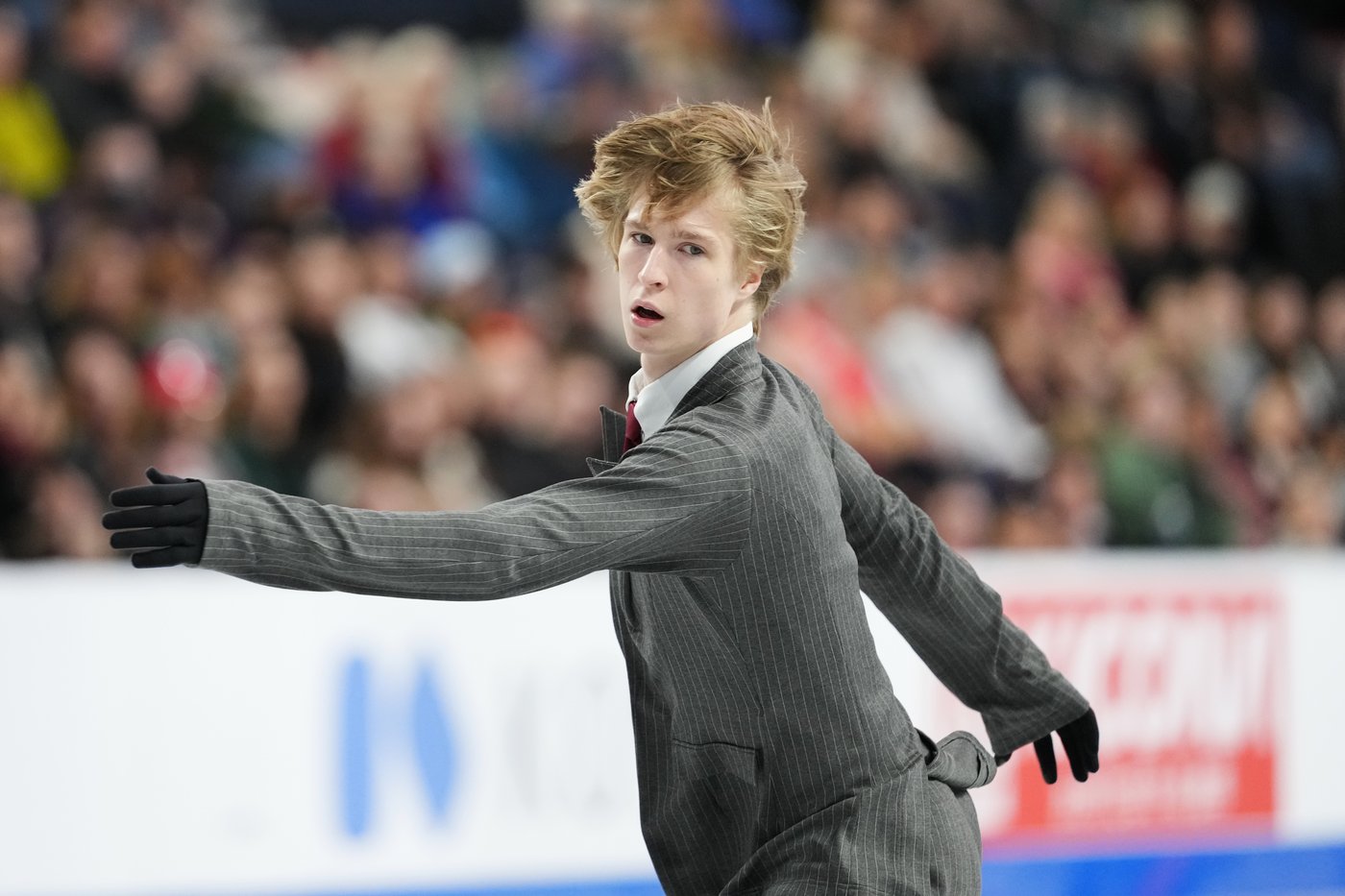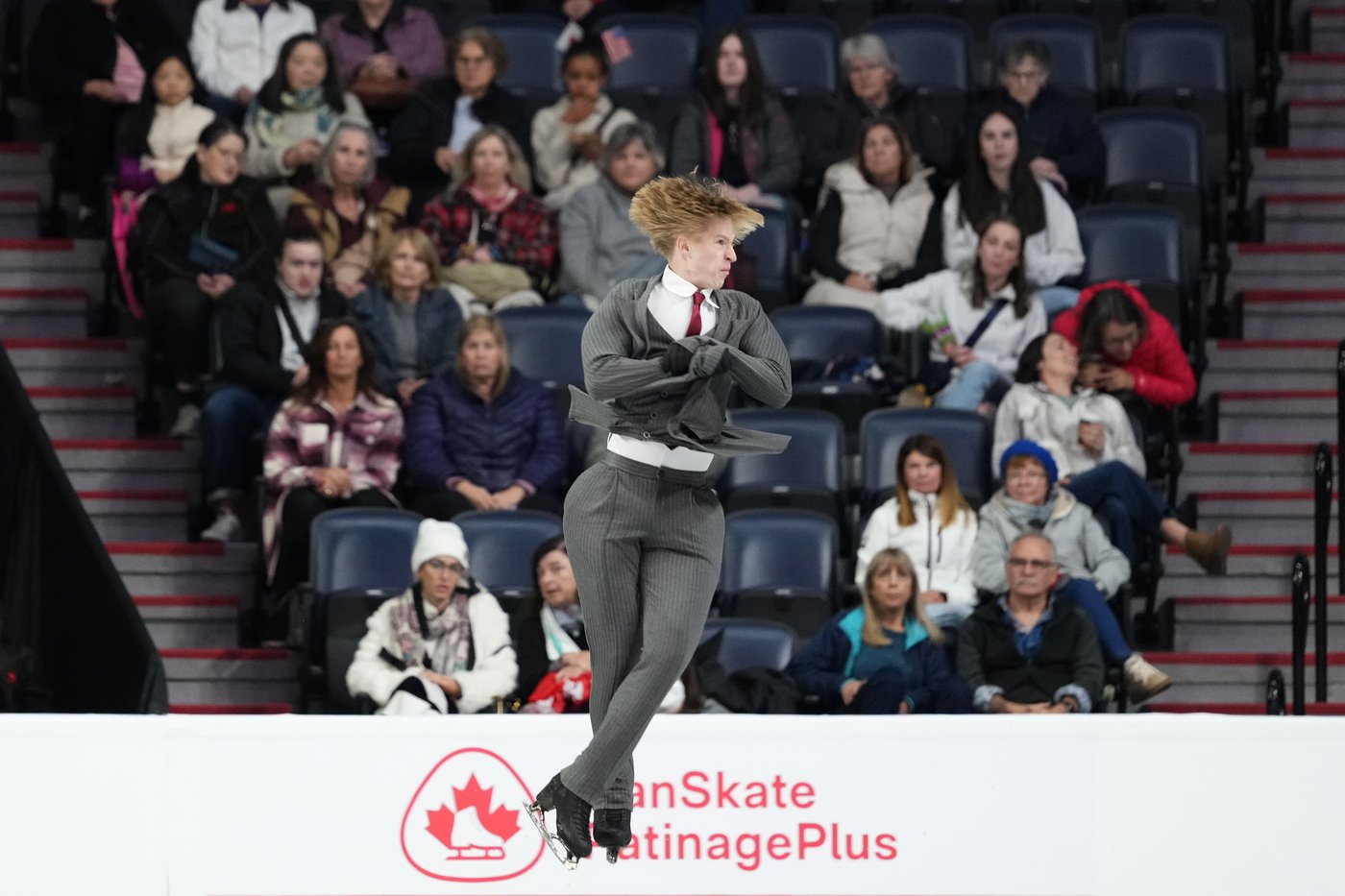Elevate your local knowledge
Sign up for the iNFOnews newsletter today!
Sign up for the iNFOnews newsletter today!
Selecting your primary region ensures you get the stories that matter to you first.

Stephen Gogolev contemplated hanging up his skates.
He was once the next big Canadian hope in men’s figure skating, a prodigy landing triple axels at age 10, until a massive growth spurt and recurring back injuries threw his trajectory off course.
Gogolev spent the last several years struggling just to stay on competitive ice, nowhere near the international podiums he had seemed destined. When his season was cut short for a second consecutive year in December, he wasn’t sure he would return.
“I definitely had those thoughts,” said Gogolev, now 20. “It was really frustrating … I wasn’t really sure whether these issues were going to keep continuing.
“It was more of a thing that, I was going to give it one last try … it was definitely harder to make that decision to keep skating.”
It’s a decision he doesn’t regret.
Gogolev is finally pain-free, and it’s showing. He topped the Nebelhorn Trophy podium on the Challenger Series in Oberstdorf, Germany, on Sept. 26 to capture his first senior gold medal.
The Toronto skater won both the short and long programs with personal bests to finish with 255.06 points, a score that would have placed 11th at last season’s world championships. The milestone built on a bronze medal at the Cranberry Cup in Boston this summer.
A similar performance would have been unthinkable just a few months ago.
“I don’t think it’s really fully sunken in yet,” Gogolev said by phone from Toronto. “A very special moment, coming back from injuries and being healthy again, and being able to perform at a much higher level than what I was capable of in the past three years.”
Following his December shutdown, Gogolev spent three months off the ice, starting with little more than walking before transitioning to careful, measured gym workouts with his trainer, Chris Cooper. He eventually returned to the ice, gradually progressing from skating in circles all the way back to jumping.
“It’s hard to stay patient during these times,” he said. “All you just want to do is train full-out.”
Lee Barkell, Gogolev’s coach at Toronto’s Granite Club, sees a rejuvenated skater.
“Seems to have found a new energy and love of the sport,” said Barkell. “He’s always enjoyed jumping, but you can really see now he’s starting to focus more on the second mark and the overall performance.”
French choreographer Benoît Richaud, also Gogolev’s coach, says he’s looking more and more like his old self.
“His face was always very charming, always smiling,” Richaud said. “He kind of lost that, and I think it’s getting back. You see that he expresses himself much more.
“It’s beautiful to see.”
Gogolev said this is the longest he’s skated without major issues in years. He has found consistency in his training and can now focus on skating, rather than worrying about recovery.
He will next compete at Skate Canada International on the Grand Prix Circuit Oct. 31-Nov. 2 in Saskatoon. And after years of setbacks, Gogolev finally has his sights set on the Olympics.
Canada holds just one men’s spot for the 2026 Milan-Cortina Games, with 2022 Olympians Roman Sadovsky and Keegan Messing among the other contenders, but Barkell believes Gogolev should dream big.
“If he delivers what he’s capable of, he should be on that Olympic team,” Barkell said.
Gogolev seemed destined for such a moment from an early age, winning the Junior Grand Prix Final in December 2018 to become the event’s youngest-ever champion at 13. He also became the youngest skater and first Canadian to land a quad lutz in competition.
During the 2019-20 season, Gogolev moved to Irvine, Calif., to train with renowned coach Rafael Arutyunyan. Around the same time, the once pint-sized Canadian shot up from five feet to six feet.
Growth spurts affect skaters differently, Barkell said. In some cases, athletes adjust seamlessly. In others — especially as drastic as Gogolev’s — it disrupts balance and coordination.
For Gogolev, it also triggered his back problems.
“With growth, depending on how much, you have to watch the training load as well,” Barkell said. “Hindsight’s 20-20, but perhaps he did a little bit more than he should have at the time.”
A frustrating few years followed, prompting Gogolev to move his training base back to Toronto in 2024-25. He also transferred from the University of California, Irvine, to the University of Toronto, where he’s majoring in political science.
When Richaud, who’s based in Europe and New York, began working closely with Gogolev, the skater knew he was capable of more.
“He just said to me, ‘I know I can do it, but I don’t know how to do it,'” he said.
Richaud felt the move to Toronto was necessary to get Gogolev back on track, believing some past decisions hadn’t served the young skater well.
“We forgot sometimes that Stephen is very young,” he added. “His heart and his soul are very pure, so he has this ability to really trust everyone. And when you get older, you need to understand that you cannot always trust everyone.
“He needed to make some big changes … And he did it. I think now we can already see that there are results.”
Now healthy and training consistently, Gogolev is trying to “just get better every day” — with an eye on the sport’s biggest stage.
“I want to stay positive and I want to continue what I’ve been doing in training,” he said. “The main goal is going for the Olympics.”
This report by The Canadian Press was first published Oct. 6, 2025.


This site is protected by reCAPTCHA and the Google Privacy Policy and Terms of Service apply.
Want to share your thoughts, add context, or connect with others in your community?
You must be logged in to post a comment.